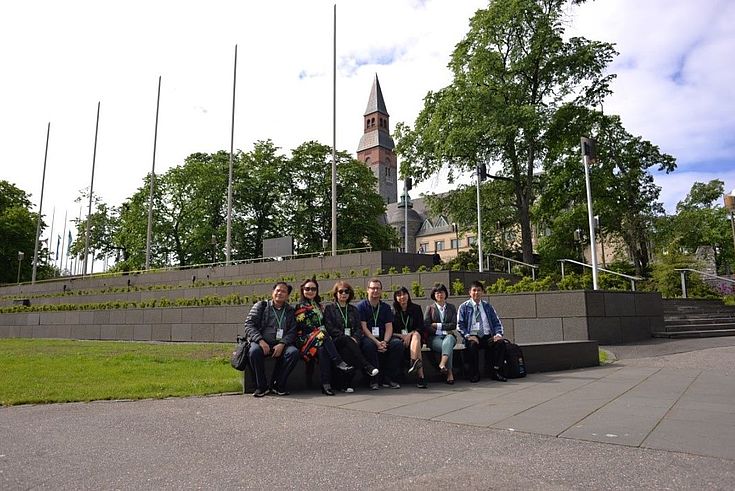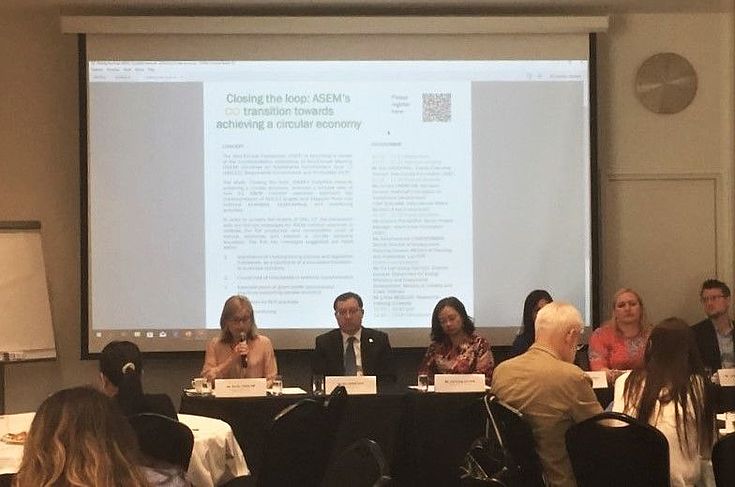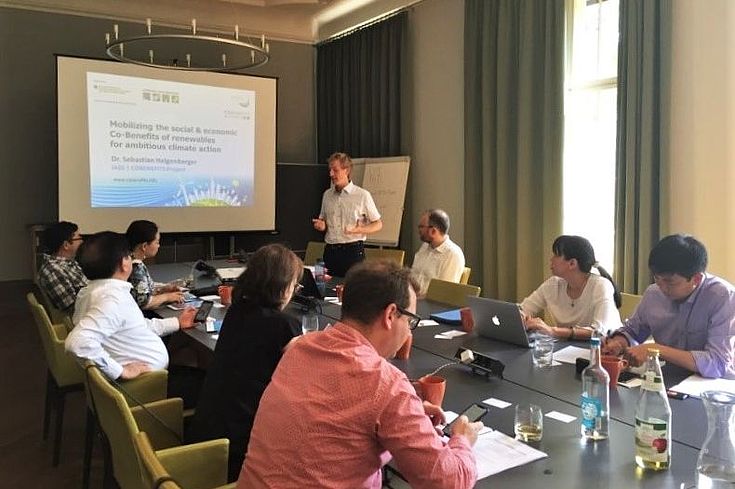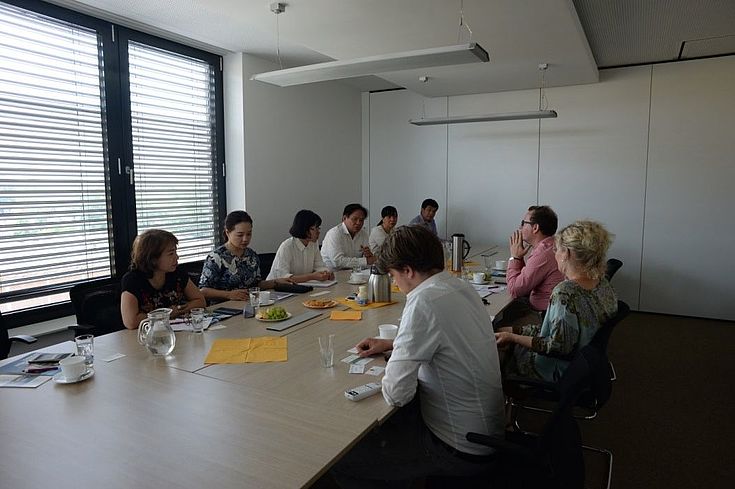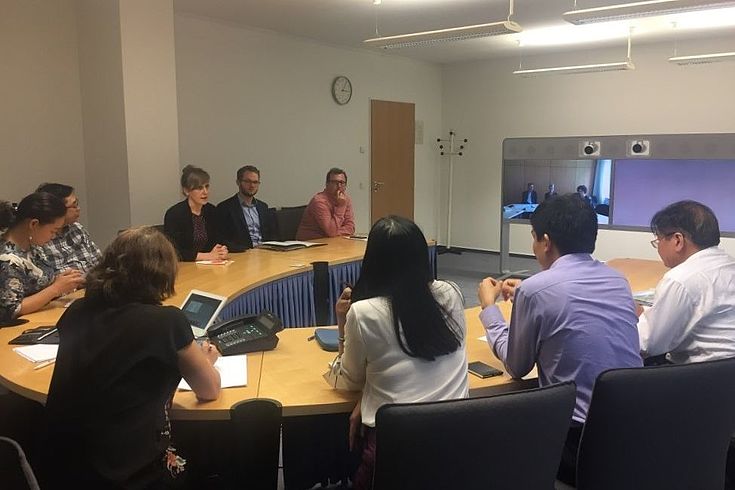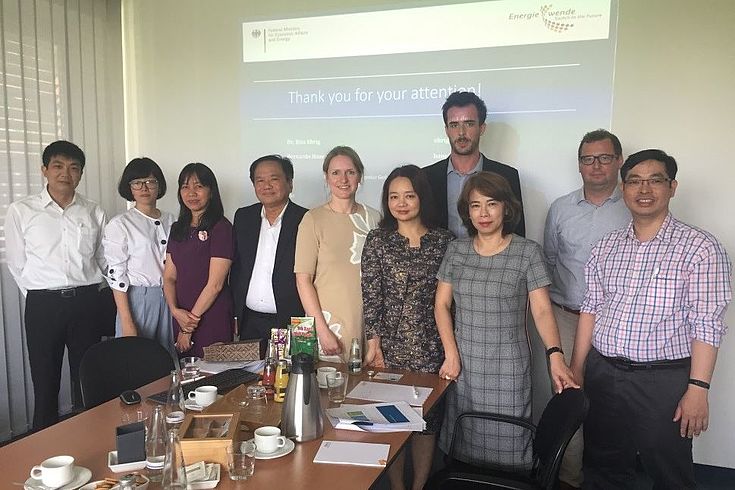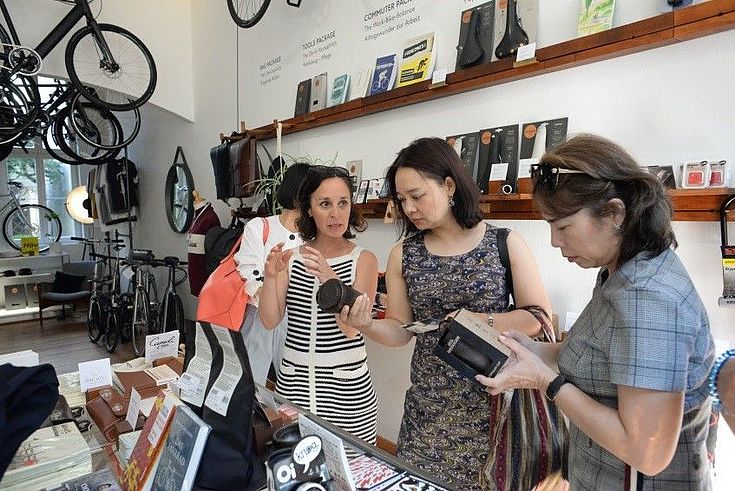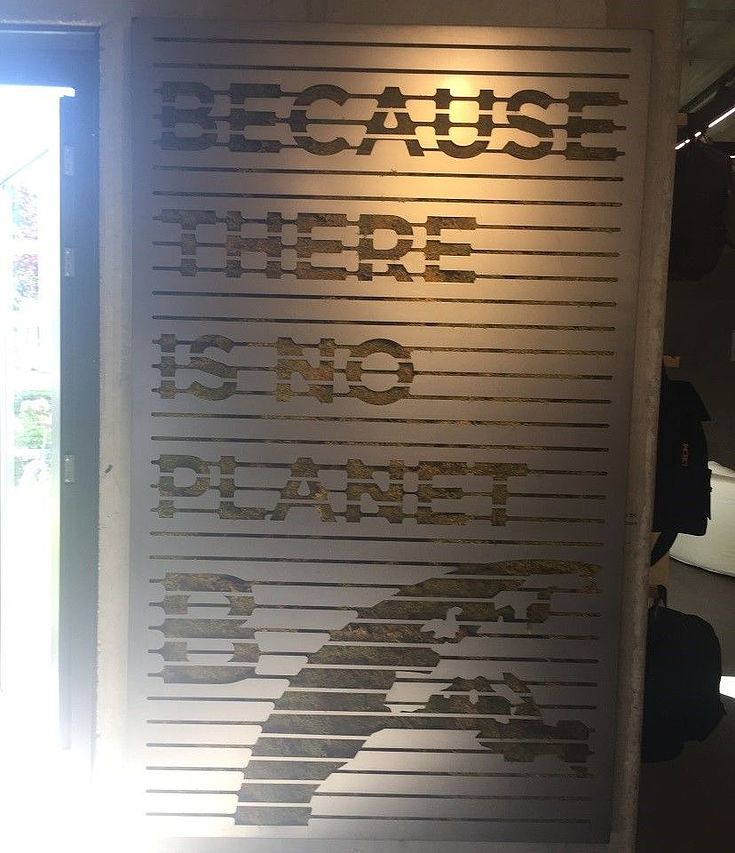HSF organized a study trip with a Vietnamese Delegation to Finland and Germany
Vietnam learns from European experience in promoting circular economy
Vietnamese delegation visits Finland and Germany for a study trip on circular economy
HSF
The delegation consists of 3 participants from the Vietnamese Ministry of Industry and Trade led by Ms. Lam Giang Nguyen, Director General of the Department of Energy Efficiency and Sustainable Development and 3 participants from the Ministry of Natural Resource and Environment led by Associate Professor Dr The Chinh Nguyen, Director General of the Institute of Strategy and Policies on Natural Resource and Environment. The study visit is an activity within the ASEAN project on strengthening the implementation framework for Sustainable Consumption and Production managed by HSF Vietnam.
The programme consists of the participation in the World Circular Economy Forum in Finland and several meetings with government institutions, research institutes as well as innovative best practices of circular economy in Germany.
Day 1 & 2:
On the first two days of the trip, the delegates attended the World Circular Economy Forum (WCEF). The World Circular Economy Forum is a global initiative of Finland and the Finnish Innovation Fund Sitra which was organized in Helsinki in 2017 and in Yokohama, Japan, in 2018. The third WCEF 2019 had a strong emphasis on scaling up the circular economy transition. This involves growing investments into circular economy businesses, spreading and adopting new technologies and making significant regulatory changes that enable the circular economy to flourish. WCEF 2019 consists of 17 plenary and parallel sessions, among which of special interest for the Vietnamese delegation are the session on Governance and circular economy roadmap, Building an enabling environment for circular businesses, Plastics and a circular bio-economy and Carbon-neutral industry in the circular economy.
WCEF side-event on ASEM´s transition towards achieving circular economy
HSF
Day 3:
In the morning, the delegates attended WCEF side-event organized by the Asia-Europe Foundation titled “Closing the loop: ASEM’s transition towards achieving a circular economy”. The side-event was structured with a presentation on Finnish experience in transitioning towards circular economy which was shared by Ms. Annika Lindblom, Secretary General of the Finnish National Council for Sustainable Development as well as a presentation on Lao PDR initial moves to prepare for the transition by Ms. Sipaphaphone Chounramany, Lao Ministry of Planning and Investment. Ms. Lam Giang Nguyen, head of the Vietnamese delegation, contributed with her insights into Vietnam’s latest move towards circular economy.
After that, the delegation headed to Germany for two days of intensive exchange with ministries and institutions on Germany’s experience in implementing circular economy.
Dr Helgenberger presented IASS research project on co-benefit of renewable energies in Vietnam
HSF
Day 4:
At the Institute of Advanced Sustainability Studies in Potsdam, the delegation was welcomed by Prof. Ortwin Renn, Science Director. During the 1,5 hour meeting, the delegates had the chance to explore the Global Sustainability Strategy Forum 2030, a platform of world leading research institutes in the field of sustainable development.
Dr. Sebastian Helgenberger presented on the outcome of his research project on co-benefits of renewable energy which was conducted in Vietnam. The multi-disciplinary research concluded that renewable energy projects could create more employment than conventional energy projects and thus result in a co-benefit mechanism between investors and local communities.
The delegates were very interested in the governance component of IASS research activities as how to balance between environmental protection and economic exploitation. Useful for Vietnam could be the IASS research on structural change research component on how to promote stakeholder participation in the national and regional policy making.
Meeting with MLUL Brandenburg
HSF
The second meeting of the day took place at the Brandenburger Ministry of Rural Development, Environment and Agriculture.
The delegates were very interested in the German waste treatment process starting from the waste sorting at source to the stage of recycling and treatment of unrecyclable waste. They were keen on learning German’s experience of implementing legislation as well as other soft measures to improve the waste management and boost the waste sector. Further details on treatment and recycling of paper, glass and plastic wastes were exchanged.
The 4th day was concluded with a meeting at the German Environment Ministry (BMU) with the participation of technical experts from Bonn via tele-conference.
Technical discussion with experts at BMU in Berlin with tele-confenrence with experts in BMU Bonn (Dr. Andreas Jaron, Dr. Almuth Ostermeyer-Schlöder, Dr. Anja Meutsch)
HSF
The experts provided the delegates with an overview of all German legislations in waste management. When Dr. Chinh from ISPONRE asked for advice on initial first steps to improve the current waste management in Vietnam, Dr. Andreas Jaron hinted that Vietnam could start first with sorting out dry and wet waste before applying 5-type-sorting as currently common in Germany.
Day 5:
The last day of the trip started with a meeting with Ms. Ulrike Linnig at Climate KIC office. Climate KIC is a Knowledge and Innovation Community supported by European Institute of Innovation and Technology with a vision to help create a prosperous, inclusive, climate-resilient society with a circular, zero-carbon economy. The delegates share an high interest in the Climate KIC programme to support innovative start-ups as well as the international outreach programme on awareness raising for youth.
The delegation after a fruitful and comprehensive discussion with DENA experts
HSF
The programme continued with a technical discussion at the German Energy Agency. During this meeting, the delegates was provided with an insight into Germany’s energy transition and current energy mix. It was also highlighted in this discussion that energy efficiency is Germany’s prioritized task to reduce energy consumption and lower the emission from energy sector to contribute to the country’s climate target.
The 5-day programme was concluded with a Circular Economy tour in Berlin where the participants visited different small-scale businesses which pledged to contribute to circularity. The businesses ranged from restaurants to fashion and designing where wastes are either optimized or the products itself come from wastes. The tour provided an inspiration on how circularity can be started from a small-scale business which can be up-scaled with the support of appropriate policies.
Final Circular Economy Tour
HSF
HSF

